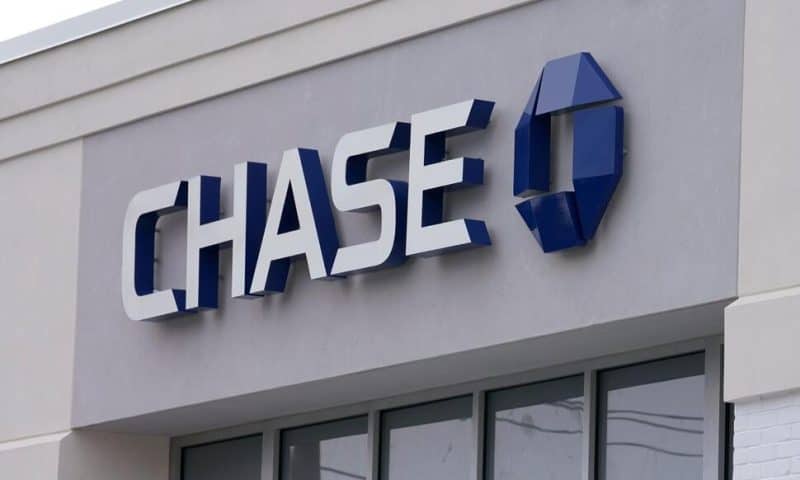JPMorgan Chase says its fourth-quarter profits rose 6% from a year ago, as higher interest rates helped the bank make up for a slowdown in deal-making in its investment bank
NEW YORK — JPMorgan Chase & Co. said its fourth-quarter profits rose 6% from a year ago, as higher interest rates helped the bank make up for a slowdown in deal-making in its investment bank. The bank also set aside more than $2 billion to cover potential bad loans and charge-offs in preparation for a possible recession.
The New York-based bank said Friday that it earned $11.0 billion last quarter, up from $10.4 billion in the same period a year earlier. On a per-share basis, JPMorgan said it earned a profit of $3.57 a share compared to $3.33 a share in 2021, much better than the $3.08 a share that analysts were expecting.
The biggest driver of JPMorgan’s profits this quarter was higher interest rates. The bank, like its competition, has been helped considerably by the Federal Reserve hiking rates aggressively to combat inflation as banks can charge more for loans.
JPMorgan’s net interest income was $20.3 billion, up 48% from a year earlier.
But at the same time that the Fed’s rate hikes have helped JPMorgan’s bottom line, the chance that the Fed will push the U.S. economy into recession has increased as well. JPMorgan set aside $1.4 billion to cover potentially bad loans, and incurred roughly $900 million in charge-offs. The bank said it needed to set aside more money to cover bad loans due to “a modest deterioration” in the firm’s economic outlook, which now calls for a “mild” recession.
However JPMorgan as well as other banks remains upbeat about the health of the U.S. consumer. JPMorgan saw a double-digit rise in credit card spending from a year earlier.
“The U.S. economy currently remains strong with consumers still spending excess cash and businesses healthy,” said Jamie Dimon, chairman and CEO of JPMorgan Chase, in a statement. “However, we still do not know the ultimate effect of the headwinds coming from geopolitical tensions including the war in Ukraine, the vulnerable state of energy and food supplies, persistent inflation that is eroding purchasing power and has pushed interest rates higher, and the unprecedented quantitative tightening.”
Last year’s market decline hit JPMorgan’s investment bank particularly hard in the last quarter. The bank reported a 27% decline in profits in its corporate and investment bank, mostly caused by a more than 50% drop in investment banking fee revenues. Deal-making last year slowed considerably, as many companies chose to hold off any big moves due to the Fed’s rate hikes.
For the full year, JPMorgan had revenue of $128.7 billion while profits fell 22% from 2021 to $37.7 billion. Most of the decline in JPMorgan’s full-year profits were tied to the higher credit costs the bank had to expense for the loan losses.
JPMorgan shares rose slightly in morning trading. The shares are up nearly 4% so far in 2023.

